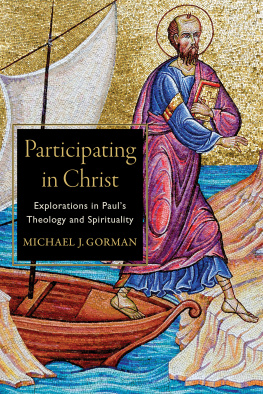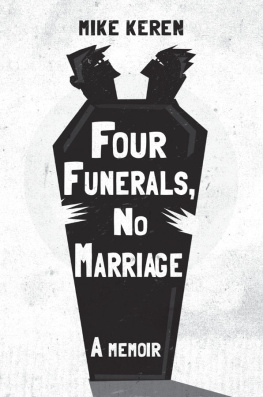Michael Jindra - Funerals in Africa: Explorations of a Social Phenomenon
Here you can read online Michael Jindra - Funerals in Africa: Explorations of a Social Phenomenon full text of the book (entire story) in english for free. Download pdf and epub, get meaning, cover and reviews about this ebook. year: 2013, publisher: Berghahn Books, genre: Politics. Description of the work, (preface) as well as reviews are available. Best literature library LitArk.com created for fans of good reading and offers a wide selection of genres:
Romance novel
Science fiction
Adventure
Detective
Science
History
Home and family
Prose
Art
Politics
Computer
Non-fiction
Religion
Business
Children
Humor
Choose a favorite category and find really read worthwhile books. Enjoy immersion in the world of imagination, feel the emotions of the characters or learn something new for yourself, make an fascinating discovery.

- Book:Funerals in Africa: Explorations of a Social Phenomenon
- Author:
- Publisher:Berghahn Books
- Genre:
- Year:2013
- Rating:4 / 5
- Favourites:Add to favourites
- Your mark:
- 80
- 1
- 2
- 3
- 4
- 5
Funerals in Africa: Explorations of a Social Phenomenon: summary, description and annotation
We offer to read an annotation, description, summary or preface (depends on what the author of the book "Funerals in Africa: Explorations of a Social Phenomenon" wrote himself). If you haven't found the necessary information about the book — write in the comments, we will try to find it.
Funerals in Africa: Explorations of a Social Phenomenon — read online for free the complete book (whole text) full work
Below is the text of the book, divided by pages. System saving the place of the last page read, allows you to conveniently read the book "Funerals in Africa: Explorations of a Social Phenomenon" online for free, without having to search again every time where you left off. Put a bookmark, and you can go to the page where you finished reading at any time.
Font size:
Interval:
Bookmark:
 Funerals in Africa
Funerals in Africaa Social Phenomenon

First paperback edition published in 2013

African Funerals and Sociocultural Change: A Review of Momentous Transformations across a Continent
A Decent Death: Changes in Funerary Rites in Bulawayo
Transformations of Death among the Kikuyu of Kenya: From Hyenas to Tombs
Decomposing Pollution? Corpses, Burials, and Affliction among the Meru of Central Kenya
The Rise of Death Celebrations in the Cameroon Grassfields
Funerals and Religious Pluralism in Burkina Faso
Funerals and the Religious Imagination: Burying and Honoring the Dead in the Celestial Church of Christ in southern Benin
Of Corpses, Clay, and Photographs: Body Imagery and Changing Technologies of Remembrance in Asante Funeral Culture
Funerals and Fetish Interment in Accra, Ghana


Font size:
Interval:
Bookmark:
Similar books «Funerals in Africa: Explorations of a Social Phenomenon»
Look at similar books to Funerals in Africa: Explorations of a Social Phenomenon. We have selected literature similar in name and meaning in the hope of providing readers with more options to find new, interesting, not yet read works.
Discussion, reviews of the book Funerals in Africa: Explorations of a Social Phenomenon and just readers' own opinions. Leave your comments, write what you think about the work, its meaning or the main characters. Specify what exactly you liked and what you didn't like, and why you think so.






